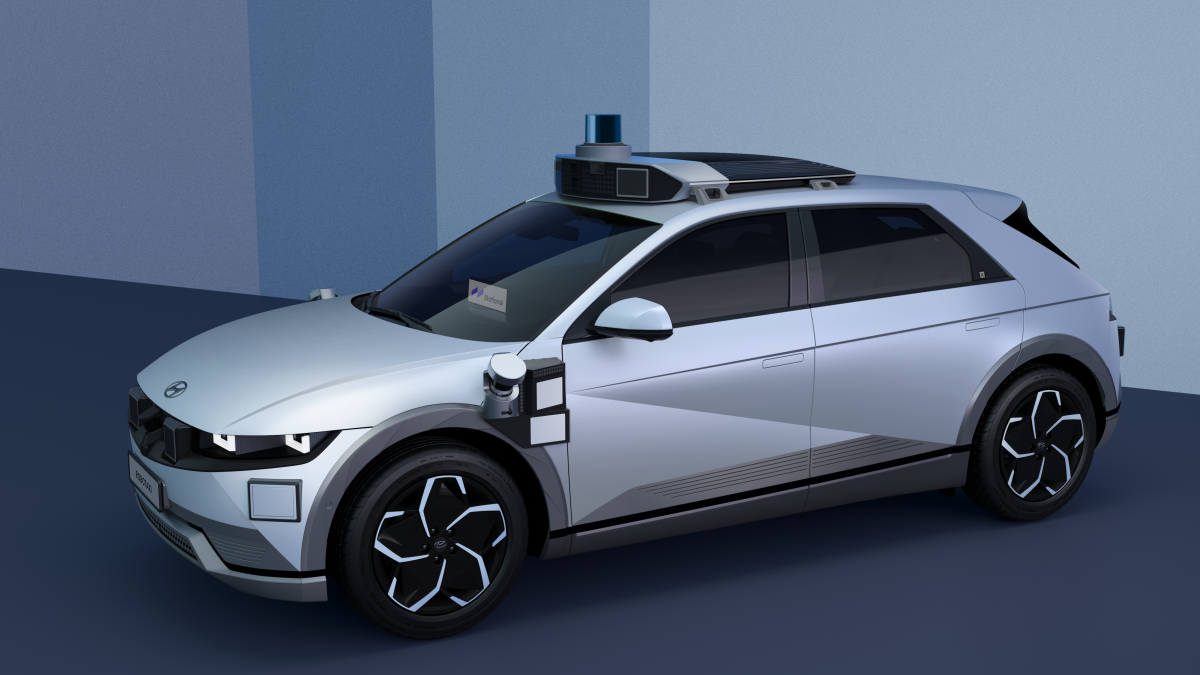Los Angeles is about to get its first robotaxi test fleet

If you’ve driven around the Bay Area lately, there’s a good chance you’ve spotted a driverless test car sharing the highway, a whirling lidar array atop its roof. Not so much in the Southland. Little robot car testing has been conducted in Southern California to date.
That will change soon. Driverless car technology company Motional announced Tuesday that it will deploy “in the near term” a test fleet of new Hyundai Ioniq 5 electric cars in and around Los Angeles, fitted with its robotaxi technology.
The Boston-based company earlier this month announced a major expansion of its Santa Monica office, including the addition of more autonomous vehicle engineering specialists.
Motional is a joint venture of Hyundai Motor Group and motor vehicle parts supplier Aptiv. The Hyundai Ioniq 5 compact electric SUV is a landmark product for the South Korean company, built on a new platform specifically engineered for electric vehicles. It’s due to hit the U.S. market this fall. (Hyundai is based in Seoul. Its U.S. headquarters is in Fountain Valley, highly visible alongside the 405 Freeway.)
Hyundai and Motional are working closely together to integrate hardware — sensors and the car itself — with a driverless software system. The Ioniq 5 will be fitted with 30 sensors including radar, lidar (which is like radar but uses laser beams in place of radio waves), ultrasound and cameras. “A lot of people think autonomy is just a software game, but integration with a vehicle is a complex task,” Motional Chief Executive Karl Iagnemma said.
The main reason for Motional’s L.A. expansion, though, is the need to attract scarce technical talent. “When most people think of Los Angeles, they think of Hollywood. I think of engineers,” Iagnemma said. “Some of the best machine learning engineers are in L.A.”
Of course, there are even more of them in Silicon Valley, where Motional is also setting up its first research and development office. But recruitment of the limited number of machine learning specialists there is highly competitive.
Motional is recruiting skilled workers from several industries, most prominently from among consumer app creators, “apps that rely on computer vision, on modifying images,” Iagnemma said. He didn’t talk about specific companies, but social media’s Snap would top such a list. Snap’s Santa Monica headquarters is a short drive from Motional’s Southern California base. The company said it plans to increase its L.A.-based workforce to more than 100 employees.
The “great university ecosystem in Southern California” will also be tapped by Motional recruiters, he said.
Motional is already testing cars in Singapore, Las Vegas, Pittsburgh and Boston. In L.A., robotaxi testing will roll out with trained test drivers. The company won’t say how many robot cars it will put on the road. The cars won’t be picking up passengers until the technology is ready and regulators approve a commercial service.
For the record:
3:16 p.m. Sept. 1, 2021An earlier version of this story said Lyft has announced plans to launch a robotaxi service in 2024. The correct year is 2023.
The company has struck a partnership with ride-hailing company Lyft, which also has a similar partnership with Argo AI and Ford. Lyft has said it plans to launch a robotaxi service in 2023 but has offered scant details.
Argo isn’t Motional’s only competitor in driverless vehicle systems. Others include Waymo, Zoox, Cruise and Aurora.
Asked what special challenges Los Angeles will present to robot car development, Iagnemma’s answer was unsurprising: “congestion.”
He added that because Los Angeles boasts such a colorful car culture, “it’s gotta be a place where you can watch a robotaxi cruise by.”
More to Read
Inside the business of entertainment
The Wide Shot brings you news, analysis and insights on everything from streaming wars to production — and what it all means for the future.
You may occasionally receive promotional content from the Los Angeles Times.











